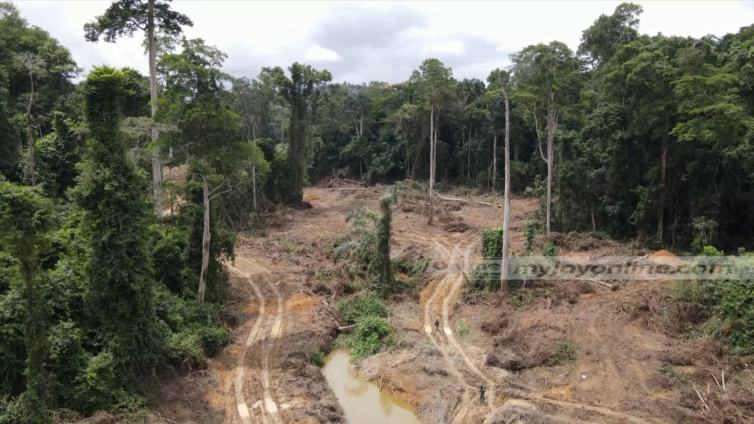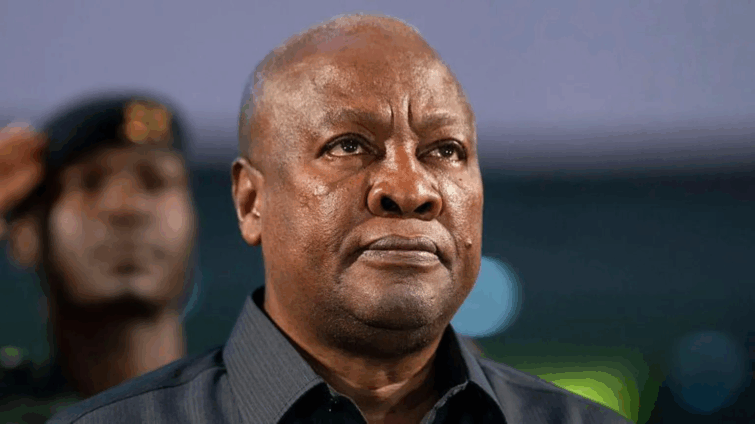Ghana's Gold Rush Reckoning: New Laws, Legal Battles & Outcry Amidst Galamsey Crackdown

Ghana is intensifying its fight against illegal mining, popularly known as 'galamsey', with President John Mahama leading high-level engagements with Civil Society Organizations (CSOs) to forge lasting solutions. Attorney General and Minister for Justice, Dr. Dominic Ayine, has outlined a series of legal and regulatory reforms central to the government's efforts to curb this menace, which has evolved from traditional artisanal practices into a destructive, industrialized activity.
A critical legislative step involves the imminent revocation of the controversial L.I. 2462, widely criticized for permitting mining in forest reserves. Dr. Ayine announced that Legislative Instrument (L.I.) 2501 will be laid before Parliament on October 14, upon its resumption, effectively revoking L.I. 2462 within 21 days of being laid. Furthermore, a new bill is being prepared to clearly prohibit mining in forest reserves. The current Minerals and Mining Act allows licenses and leases across Ghana's entire territory, including sensitive ecological zones. The proposed bill will include a schedule listing all forest reserves where mining will be categorically forbidden, making it politically challenging to alter such protections without parliamentary approval.
Enforcement actions are also escalating, with high-profile individuals facing prosecution. Dr. Ayine disclosed that the Ashanti Regional Chairman of the New Patriotic Party (NPP), Bernard Antwi Boasiako, popularly known as Chairman Wontumi, and five others, including his firm Akonta Mining, will be prosecuted for alleged illegal small-scale mining. Charges have already been signed, and Chairman Wontumi has been directed to report for his rights to be read, failing which an arrest warrant will be issued. Investigations into Akonta Mining reportedly date back to 2002 but were concealed until the current administration. To expedite such cases, the Chief Justice has agreed to assign specialized courts, and Cabinet is preparing to approve a new Public Tribunals Bill to grant circuit tribunals exclusive jurisdiction over mining cases, with strict timelines for trials.
The term 'galamsey' historically referred to small-scale, community-based gold prospecting and mining, dating back over 2,000 years. Traditionally, these operations involved rudimentary tools and manual labor, targeting shallow surface deposits. While often informal and technically illegal when on licensed lands, 'galamsey' once served as a vital livelihood for many rural Ghanaians. However, the landscape has dramatically shifted. Modern 'galamsey' operations frequently deploy heavy equipment like excavators and mechanized dredging machines, drastically increasing their scale and environmental footprint. Much of what is currently labeled 'galamsey' no longer fits the original definition; these are often commercial interests, sometimes operating under the guise of government-issued licenses, engaging in highly destructive practices. PNDC Law 218, intended to legitimize small-scale mining, ironically led to an explosion in license issuance, particularly under the Minerals Act of 2006. Data from the Ghana Mining Repository shows a significant increase in licenses granted, from a mere 40 between 1989-2006 to over 2,151 from 2017-2025. This evolution necessitates a distinction between illegal small-scale mining and licensed but irresponsible mining, emphasizing that in Ghana, mining is either legal or illegal, with ethical and sustainable methods being key.
The impact of unregulated mining is profound. The number of people involved has surged, from early estimates of 20,000-50,000 to approximately 200,000 directly and 3 million indirectly dependent on the sector by 2017. These activities are concentrated in southern Ghana, leading to impoverished settlements lacking basic services, and exposing workers, including women and children, to hazardous conditions like frequent accidents and mercury poisoning. A dire consequence is the proliferation of abandoned mining pits, which have claimed numerous lives. In the Ashanti Region alone, at least eleven people have died in such pits, including recent incidents at Kasotie and children drowning elsewhere. The Minerals Development Fund (MDF) has signaled its readiness to pursue miners who abandon open pits, and some miners are now voluntarily reclaiming their concessions.
The National Anti-Illegal Mining Operations Secretariat (NAIMOS), under Col. Dominic Buah, has declared zero tolerance for illegal miners, their associates, and financiers, labeling them
You may also like...
Super Eagles Shake-Up! Osimhen Leads, Iheanacho Dropped as WC Qualifying Crisis Looms

Nigeria's Super Eagles face a critical juncture in their 2026 FIFA World Cup qualifiers, with head coach Eric Chelle nam...
Flying Eagles Stun Saudi Arabia in U-20 World Cup Thriller, Plot Colombia Takeover!

Nigeria's Flying Eagles secured a dramatic 3-2 victory over Saudi Arabia at the FIFA U-20 World Cup, reigniting their qu...
Raoul Peck's 'Orwell: 2+2=5' Terrifies Critics, Unveiling Orwell's Enduring Relevance

Raoul Peck's documentary "Orwell: 2+2 = 5" explores George Orwell's "Nineteen Eighty-Four" and its chilling contemporary...
Pop Queen's Secret: Taylor Swift's New Album Ignites Fierce Baby Rumors

Taylor Swift's latest album, "The Life of a Showgirl," released October 3, contains significant hints about her future w...
Royal Rumble: Prince William's Childhood Comments Threaten King Charles' Calm

Prince William has opened up about his parents' divorce and the profound impact of childhood stress in a candid discussi...
Shocking BBNaija Disqualification: Faith Adewale Kicked Out for Assaulting Sultana

Big Brother Naija Season 10 housemate, Faith Adewale, has been disqualified just three days before the grand finale afte...
Fragrance Obsession: Insider Reveals Must-Have Lush Scents From Epic 150-Bottle Collection!

Lush superfan Jenn unveils her impressive collection of 150 fragrances, including personal favorites like Karma and the ...
B&M Drops Sensation: P.Louise Lip Kit Dupe for Just £3!

A shopper has uncovered remarkably similar 'dupes' of P.Louise's £22 lip kits at B&M for just £3, sparking excitement am...




